The results are in from Clio’s 2010 Apple in Law Firms Survey and I wanted to highlight a few points and make a few comments. Jack Newton from Clio first presented some of the results at MILOfest and then released the full results after the conference.
My first pleasant surprise was the number of respondents to the survey. Jack reported that they received 835 responses to their survey which covered both Mac and Windows users.
The greatest majority of respondents (50%) were from small firms with between 1-10 total users. 15% of the respondents were from large firms (> 50 total users). About 10% of the respondents were law students.
Most of the survey questions were directed to the Mac-using respondents, the first being how long they had been using Macs in their office. The greatest majority have been using Macs for over 2 years:
The next question asked which “cloud-based apps” that lawyers were using on their Macs. Not surprisingly, Clio came out on top, but Jack Newton at MILOfest mentioned that the survey was a little biased since Clio was actually sponsoring the survey.
The bigger surprise was the number of folks running Google Apps – over 30%. I knew Google Apps was popular, but I didn’t realize it was that popular. Clio obviously had a clue since they recently announced full integration between Clio and Google Apps, which made at least one legal blogger very happy.
The next question asked which desktop apps lawyers were using on their Macs. Microsoft Office topped the list at 38%, followed by iWork at 11%. I’m not completely surprised by this, as Microsoft Office is still the gold standard for office-suite software the world over, regardless of what operating system you’re using.
I’ve always recommended that Mac-using lawyers purchase a full copy of Microsoft Office for Mac. The development for the product is still very healthy (they just released version 2011) and having Office is the most dependable route to ensure you can create and open documents that will be compatible with all other versions of Office. You can certainly get by without Microsoft Office, but having it will lessen the frustrations you’ll encounter with file conversion and formatting.
At MILOfest, Jack also shared that QuickBooks was high on the list of desktop apps. I was a little surprise by that, but I attribute it to good marketing and name recognition by Intuit. There are other accounting alternatives that are specifically built for legal professionals.
The next question asked Mac users what specifically influenced them to select Apple over PC products. At MILOfest, Jack commented that he was a little surprised by these results because he expected that “aesthetics & design” would be higher. It turns out that “reliability & security” are the top reasons why lawyers go with Apple over PC products (about 46% of respondents).
I almost wish that Clio had broken the question out further so that respondents could differentiate between reliability and security – they’re quite different concepts. The majority of lawyers that I work with who are considering switching from Windows to Mac are doing so because they’ve run the numbers and firmly believe that while Apple products may initially have a higher price tag, but the products pay for themselves over the course of a few years since they last longer and require less maintenance (i.e. tech support).
Next in the list was “usability” at 27% and the “aesthetic & design” factor came in low at around 7%.
When it came to iPad adoption, I was surprised to see that only 20% of respondents had one, which equaled about 1 in 5. I say “surprisingly” simply because there’s just been so much hype about the product accompanied by a relatively small price point.
On the other hand, when respondents were asked if they were planning to purchase an iPad in the next year, about 44% said yes.
The iPhone was a slightly different story with about 50% of respondents reporting that as their primary mobile device. I like that Clio left the question open for any mobile device as the BlackBerry was next behind the iPhone at 26%, and the Android at 10%. I was certainly not surprised by BlackBerry’s showing since it still continues to be the workhorse for mobile professionals.
Jack suggested that Android use will continue to increase based on the use of Google Apps in the question above (Android is a Google-supported platform which mens that Google services run very well).
When respondents were asked if they planned to switch devices next year, the majority of them weren’t budging, but the iPhone came in as the top choice for potential switchers. This coincides with other, similar surveys that have come out over the last year.
Last question for lawyers currently using a Mac was whether they would choose Macs again if they could do it all over again. The response was almost unanimous at 98.4%.
The Windows-users responding to the survey were asked if they were considering switching to Macs in the next year. Only 20% responded yes, while the great majority said no.
I’m not surprised by this at all. First, no one wants to commit to a huge change (including time, money, resources, etc.) if they aren’t forced to. Second, change itself is scary and if you’ve been using Windows for years and everyone else you know is using Windows – why would you change?
I’m actually surprised that the “yes” answers are as high as they are at 20%. I expected them to be lower, but perhaps there was a little bias in the respondents since it was an “Apple” in law firms survey.
The last question of the survey zoned in on law students, and asked them what they were currently using for school, and what operating system they would prefer to use when they got into practice. Around 60% of law student respondents are currently using a Mac in school, compared to 36% using Windows. The numbers stayed exactly the same for what they wanted to use when they got into practice.
This may not sound that significant to most readers since, after all, law school graduates that come into a firm a a first-year associate will use whatever they’re told they have to use at the firm. But those graduates will be partners in a few years, and the fact that over half of current law students are using Macs for their studies and daily interaction tells me that Macs in law are not dying, and there will only be more interest in the next few years
Conclusion
Monica Bay, the indomitable editor of Law Technology News posted a few comments on Clio’s survey on her Law Technology News Daily Alert on November 17, 2010:
Am I convinced that this survey evidences a wild shift away from PCs within the legal community? No. Not at all. The survey no doubt drew the Kool-Aid club. But don’t underestimate the power of the iPad to establish fissures that could start cracking Microsoft’s bedrock in the legal community. We’ll be following this closely.
I agree with Monica that Clio’s survey doesn’t evidence a “wild shift away” from PCs. But something is definitely happening whether it’s the TV ads or the “halo effect” from iOS. Macs are being featured at the ABA TECHSHOW and we just had a wildly successful (albeit a small and intimate) gathering of Mac-lovin’ lawyers down in Orlando for MILOfest.
We’ve certainly never had an “Apple in Law Firms” survey before so the very fact that we’re asking these questions shows some activity in the space. The only other survey action that has focused on Mac-using lawyers has been the ABA Legal Technology Survey Report which in 2009 reported that 4% of the respondents were running the Mac OS as their primary operating system, up from 3% in 2008.
Thank you Clio for providing some deeper insight into the Mac-using trends of legal professionals. Jack from Clio has promised that the survey will be an annual occurrence, so be sure you’re ready to respond next year.

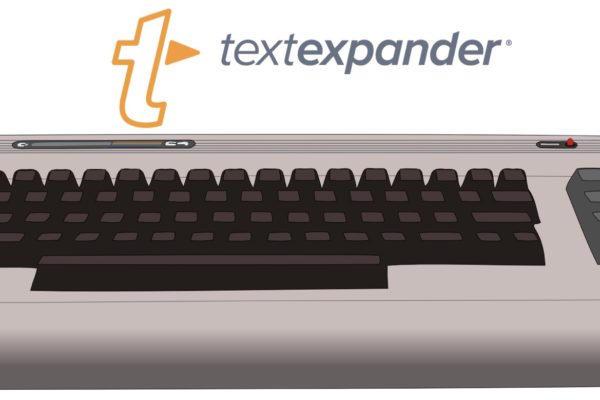
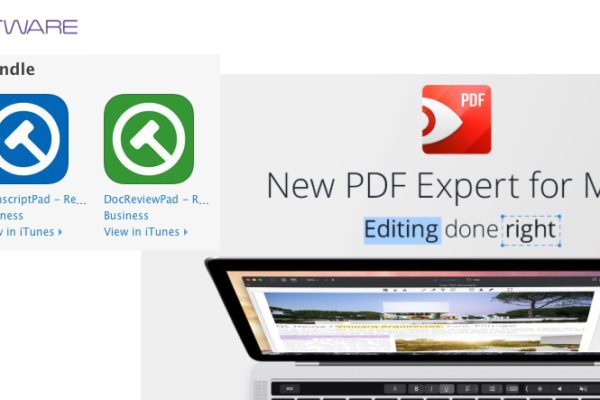
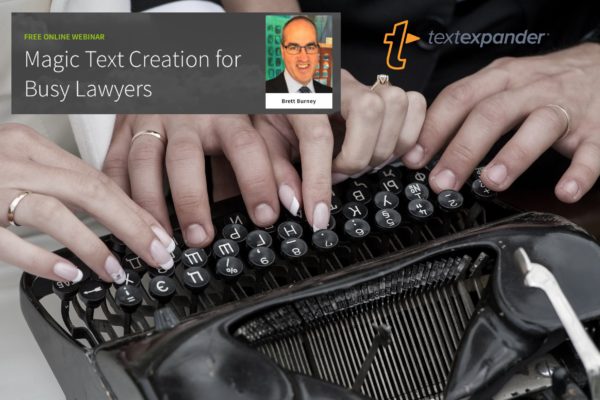
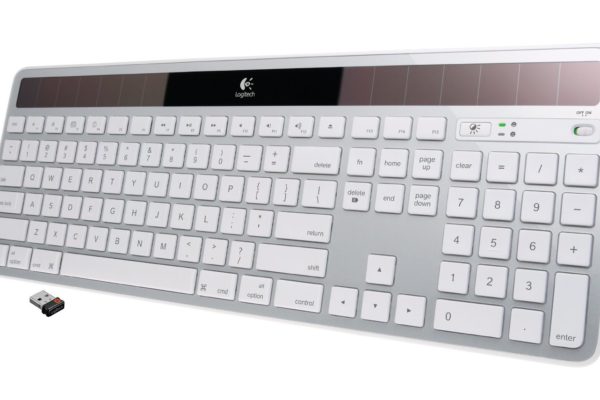

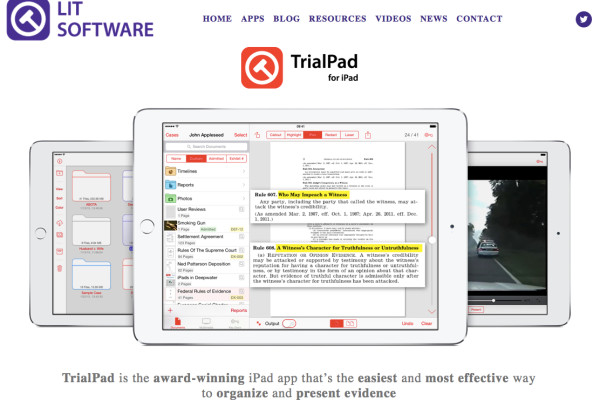
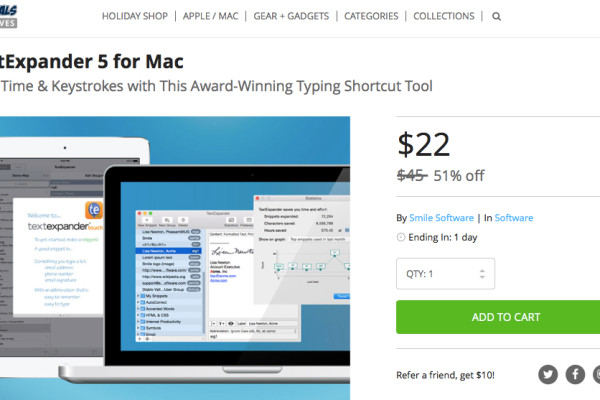
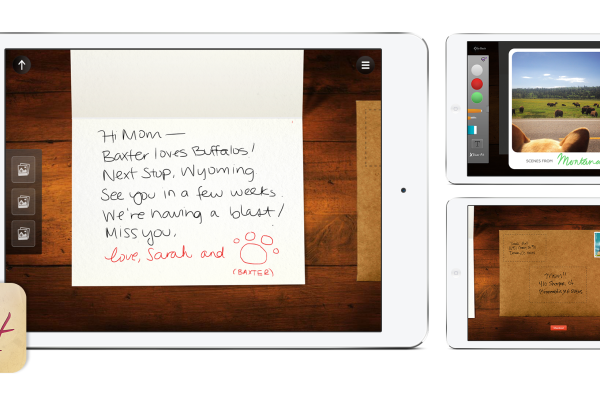
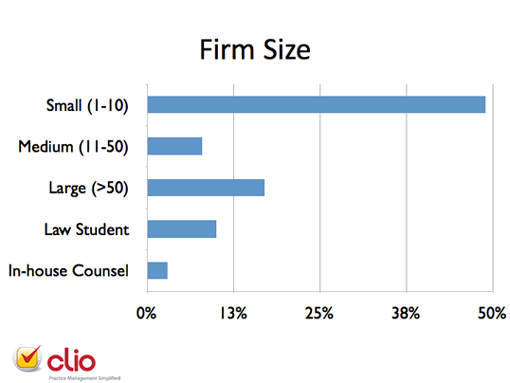
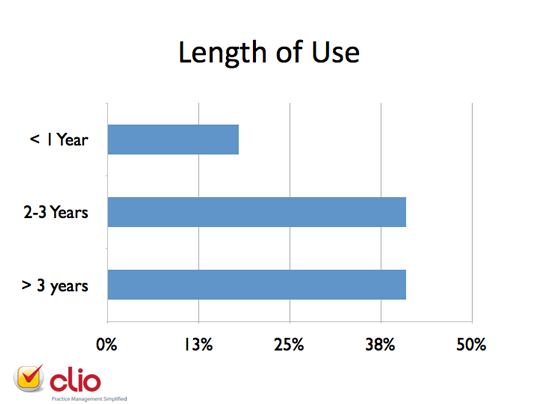
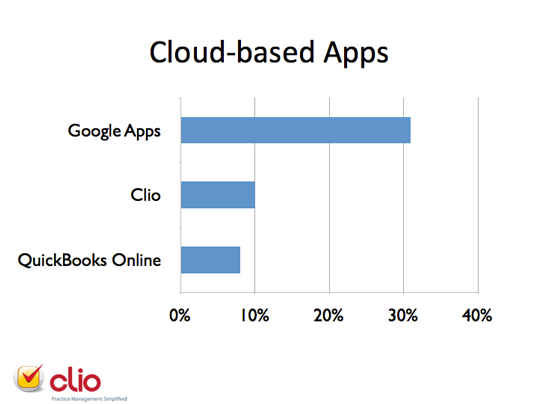
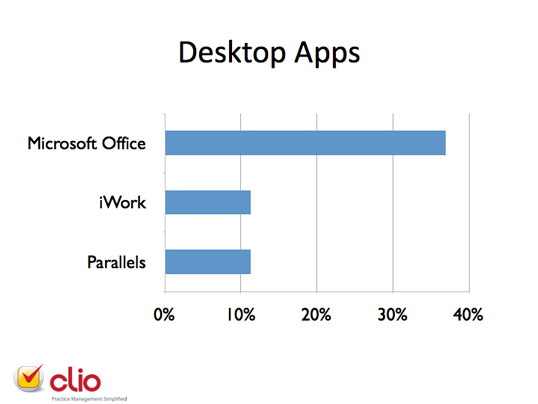
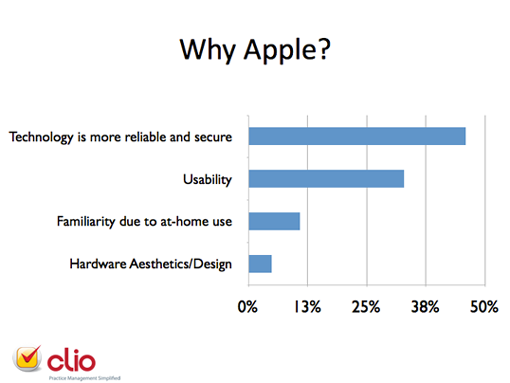
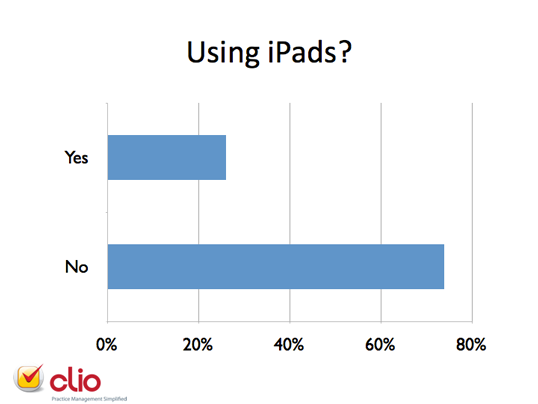
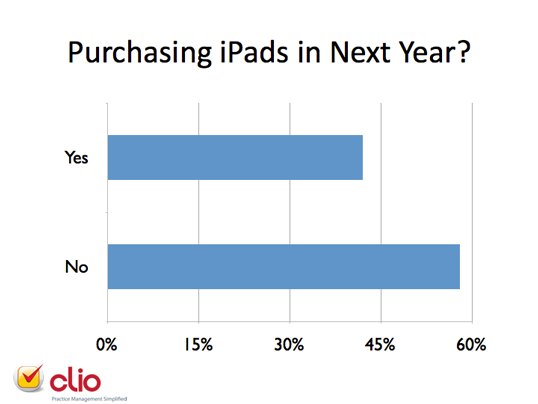
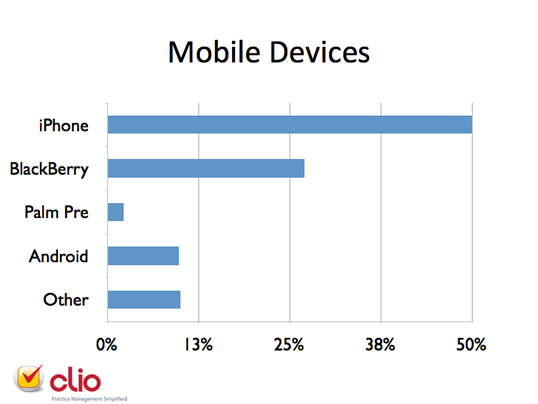
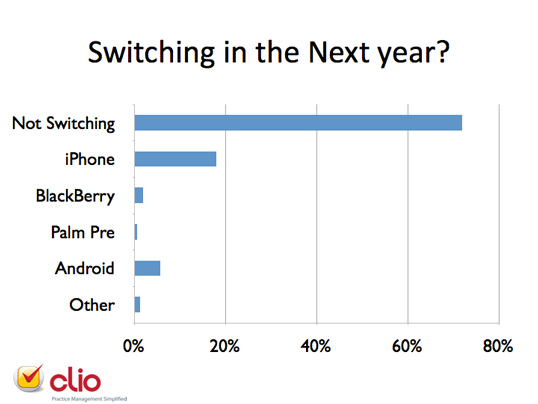
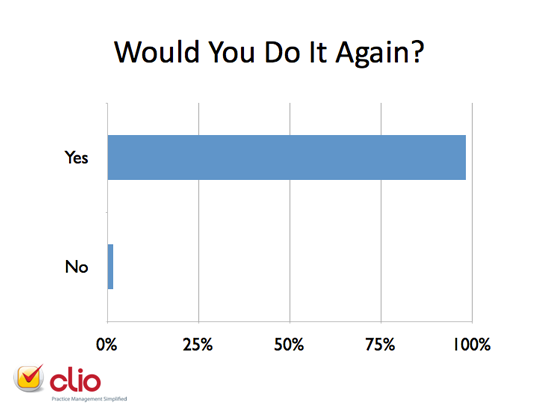
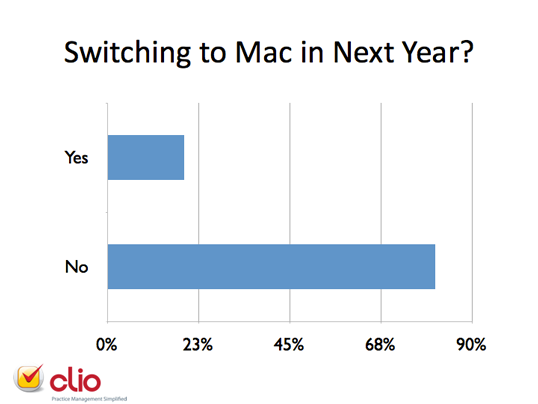
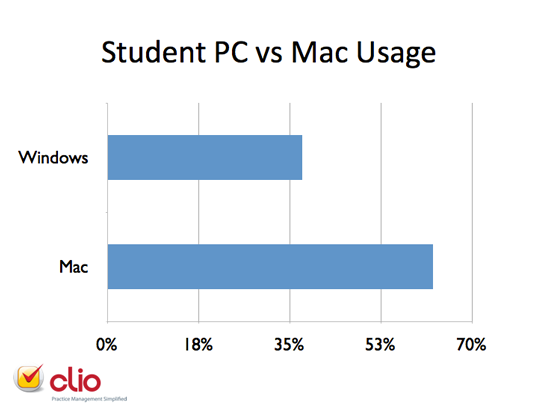
[…] covered 2010 Clio’s Survey that coincided with the MILOfest Conference of that […]
We are a 4 attorney law firm that operates on a cash basis. Quickbooks for Mac has been a nightmare and we’re looking for accounting alternatives that are specifically built for legal professionals. Do you have any recommendations or can you point me in the right direction?
Thank you.
Tricia